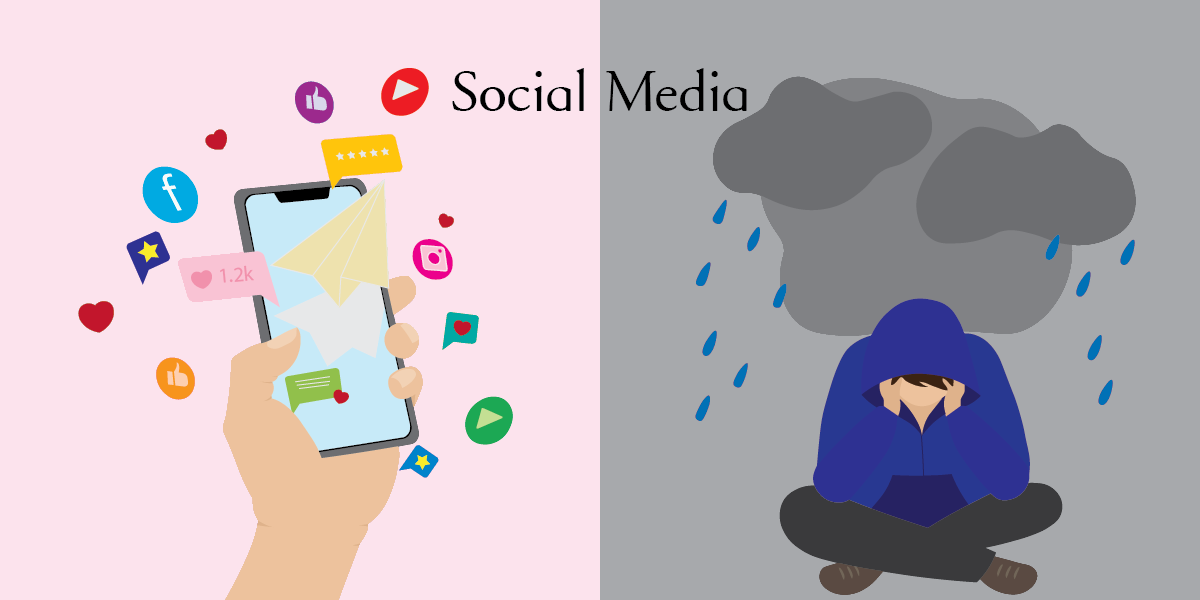While social media can help us connect with others it can also lead to a decrease in face-to-face interactions and other activities, which overall, is making us less social.
Social media is online platforms and/or applications that allow users to connect and share content with others. For instance, some popular social media platforms include: TikTok, Facebook, Twitter, Instagram, and Snapchat.

Sondury Rodriquez /THUNDERWORD
In the 21st century social media platforms have expanded how people connect with friends and family, exchanging your thoughts or experiences, and staying up to date on the latest news, such as what’s happening with the Kardashian sisters.
Having social media accounts have certainly provided many benefits, including greater social connectivity, but it has also been linked to increased loneliness.
According to a recent Harvard survey, 36 percent of all Americans, including 61 percent of young adults and 51 percent of mothers with young children, feel “serious loneliness.”
We all may prefer Facebook, Instagram, TikTok or Twitter over other things like playing the guitar, going for a walk with a friend, or belting out some karaoke tunes. However, this virtual connection is not the same as face-to-face contact – a huge stepping stone in establishing and maintaining close relationships.
Despite the fact that we can keep in touch with more people via social media, we may find ourselves less connected to them than if we met them in person.
Social media has the added benefit of giving the impression of a personal connection that is not necessarily true. We may have many followers or acquaintances on social media, but most of those connections are not really meaningful at all.
Finding a balance between using both social media and engaging in real-life interactions can be harder for some than others as some people may have more confidence behind a screen. Many people think they are part of a large online community, but this can mask the fact that they do not have close, personal relationships in their offline lives.
According to studies, people who spend more time on social media have fewer close relationships and lower levels of social support than those who spend less time on social media.
Highline student Jonathan Kam added to this by saying social media destroyed his mental health. “While using TikTok or Instagram I felt that others are living a very exciting life and fulfilling all their dreams, which created a sense of inadequacy and loneliness for me,” he said.
Another student, who chose to remain anonymous, said that these platforms can increase the chances of developing mental health problems. “Using a lot of social media creates physical and mental problems too. The high blood pressure and weakening of the immune system. The highest risk it is creating is anxiety and depression,” the student said.
Highline student Kristiana Lawreun also said the pressure of looking like the people on the screen led her to a dark place, but breaks have helped with powering through.
“I started feeling jealous of some of the TikTokers and that dumps me into the mental stress and changes myself into the same as those people. Then one of my friends suggested that I take a break from social media. I did that and in the end I came out of that and led my life in a great way,” Lawreun said.
We have to also keep in mind the impact that social media has on our mental health. Furthermore, in order to reduce the risk of these problems we must understand that it is not a substitute for real life. It might be helpful in staying in touch with people, but it doesn’t mean it should be the only way we make connections with others.
Some ways you can reduce your time on social media may be setting screen time limits on your
phone, turning off your notifications, setting your phone on “do not disturb”, or even just finding a new hobby to do instead.
Social media may have posed a perfect picture for everyone to aspire to, but the truth and reality lies in meaningful conversations with real people, not on a screen.

